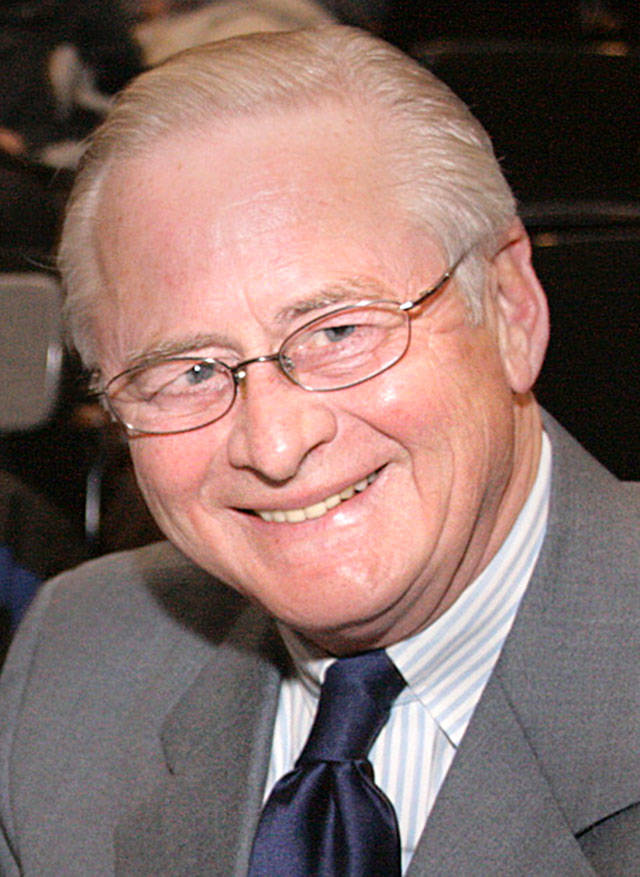Despite spending most of my life in government and politics and working with some of the best, I still judge a politician by what they do, not what they say.
The COVID-19 pandemic is pretty scary, but it illustrates one of the reasons we have government. The public needs to know government at all levels is coordinating and cooperating with each other to handle an emergency, and that citizens’ safety is their first priority. One of the keys to success is communication, thus ensuring that the public knows what government is doing and why. How have our leaders measured up to this challenge so far?
With President Donald Trump’s slow response, muddled messages and inaccurate statements his staff has had to correct, we have come to rely on the print and televised media. The president hampered his own attempt at an Oval Office speech to the nation with a lack of compassion, and says he “takes no responsibility” for the situation. Worse, his press conferences have become political events filled with inaccurate information, and health experts have had to regularly correct him.
New York Gov. Andrew Cuomo and California Gov. Gavin Newsom have become big television stars. Cuomo has an approval rating of 75% while Newsom is above 80%. Washington Gov. Jay Inslee’s approval rating is also above 70%. King County Executive Dow Constantine and Seattle Mayor Jenny Durkan have also helped fill the national leadership void.
Early use of emergency powers was needed by the president, but he was slow to respond, even though logistics is the specialty of the military. They could have provide the ventilators, masks, tests and respirators that have been desperately needed around the country. Despite initial reluctance and loss of time, the president finally started to use the Defense Production Act, though sometimes in competition rather than cooperation, with governors.
Gov. Inslee has looked more presidential than Trump. His conduct has been dignified and his decisions have been thoughtful and measured, placing safety first. To slow the spread of the coronavirus, Inslee and State Superintendent of Public Instruction Chris Reykdal made good decisions to close schools. Inslee also mandated cancellation of large meetings that affected churches, sports, concerts and other events. Inslee waived the waiting time to collect unemployment compensation and joined other governors implementing “Stay Home, Stay Safe” orders.
Even with political pushback, Inslee has held his ground. Recently he initiated a contact tracing program and will phase in the reopening of businesses. In these difficult times, seniors and the homeless have faced the biggest problems. The homeless face a vulnerability we can’t even imagine. They have limited access to soap, water, warmth, food or sanitary bathrooms.
Every executive, state, county and city has an emergency plan that is practiced a couple of times a year in case they need to declare an emergency. Most plans are built around a natural disaster such as an earthquake. But the decision-making matrix can be adjusted to account for challenges such as this.
My declaration of an emergency during my time as mayor of Auburn was the cyanide tampering case in 1986. After we learned that there had been a second death due to tampering with bottles of Excedrin, the declaration authorized Police Chief Jake Evans and his teams of officers to collect all the bottled capsules in every grocery store and pharmacy in Auburn.
Today’s challenges are much broader. With a need for an additional 3,000 beds for the more seriously ill, King County Executive Dow Constantine has followed through on his willingness to spend $100 million if needed to free up those beds. Constantine made two difficult but significant leadership moves that brought unfortunate negative reactions.
In Kent, Constantine bought a motel as a quarantine location, even though some Kent officials opposed the move. In an emergency, time counts. The political problem for Constantine was that one of the people assigned to the motel walked away. Fortunately, that person’s COVID-19 test was negative.
In White Center, the county put up modular housing for the homeless that some locals opposed. “Not in my backyard” (NIMBY) has a whole new meaning. South King County wasn’t being picked on as some suggest, as Constantine also bought a motel in Issaquah and has been using a parking lot in Bellevue with a tent, floor and heat as a quarantine location. The county worked with the City of Shoreline to build a 200-bed temporary hospital on a soccer field, and has partnered with Harborview Medical Center to provide 45 more beds.
Seattle Mayor Jenny Durkan has helped the homeless with food vouchers and a pilot “Safe Lot” program for overnight homeless parking, and has waived the rent temporarily for organizations renting from the city.
We will get through this by all working together, but it will take leaders willing to make some unpopular decisions, while thinking creatively and by providing the public clear and transparent information on what to expect from our leaders.
Of late, Trump has tried leverage his political needs by putting pressure on the states to make the economy more important than the safety of the public. But a recent poll shows 80% of citizens rate health and safety issues as a higher priority than the economy.
Inslee, Constantine and Durkan have acted like true leaders, and despite President Trump’s lack of full engagement, the buck stops at the Resolute desk.
Federal Way resident Bob Roegner is a former mayor of Auburn. Contact bjroegner@comcast.net.


